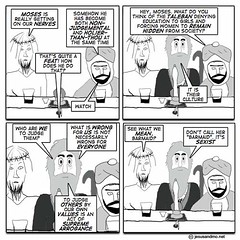"Aphra Behn
English poet, novelist, and playwright Aphra Behn (c. 1640-1689) was the first of her gender to earn a living as a writer in the English language.
Aphra Behn was a successful author at a time when few writers, especially if they were women, could support themselves solely through their writing. For the flourishing London stage she penned numerous plays, and found success as a novelist and poet as well-and through much of her work ran a decidedly feminist strain that challenged society's restrictions upon women of her day. For this she was scorned, and she endured criticism and even arrest at times. Another similarly free-thinking female novelist of a more recent era, Virginia Woolf, declared that "all women together ought to let flowers fall upon the tomb of Aphra Behn," according to Carol Howard's essay on Behn in the Dictionary of Literary Biography,"… for it was she who earned them the right to speak their minds."
A Childhood in Kent
It is likely that Behn was the infant girl Eaffry Johnson, born in late 1640 according to baptismal records from the church of St. Michael's in Harbledown, a small village near Canterbury, England. This region of England, Kent, was a conservative, insular county during Behn's youth, but the English realm itself was anything but calm during her era; Behn's fortunes and alliances would be tied to the series of political crises that occurred during the seventeenth century, and her literary output drew from and even satirized the vying factions. First came a Civil War that pitted Puritans against King Charles I; the monarchy was abolished with the king's beheading in 1649. Until 1658 England was ruled by Puritan revolt leader Oliver Cromwell, and upon his death in 1658 the monarchy was restored; hence the term for the era in which Behn wrote, Restoration England.
Behn was likely the daughter of a barber and a wet-nurse, and through her mother's care for the children of local landed gentry, the Colepeppers, Behn probably had access to some educational opportunities. Literary scholars agree that Behn most likely left England as a young woman with her family in 1663 when her father was appointed to a military post in Surinam, on the northeast coast of South America. It was an arduous journey, and some evidence suggests that Behn's father did not survive the trip. In any event, Behn, her mother, and sister stayed on at the English settlement for a time until a return trip home was possible, and the experience provided the basis for her most famous literary work, Oroonoko; or, The Royal Slave.
Oroonoko in the Annals of English Literature
This novel, published only near the end of Behn's career in 1688, chronicles the tale of a cultivated, intelligent West African prince who speaks several European languages. He falls in love with a West Indian woman named Imoinda, who is also the lover of his grandfather, the king. Imoinda is sold into slavery, and Oroonoko is kidnapped by the English and brought to Surinam as a slave. Imoinda is also in Surinam and becomes pregnant by him. Oroonoko then leads a slave rebellion-an actual event from the era-but is captured, and falsely promised freedom for Imoinda and her unborn child. When this is rescinded, he kills her so she and his child will not fall into enemy hands, and dies by rather barbarous means in English hands at the conclusion. Some of the villains and heroes were actual names from the period, English men who held posts in Surinam before it became a Dutch colony.
Literary historians trace the development of realism in the novel back this 1688 volume. Realism is a literary style that uses real life as the basis for fiction, without idealizing it or imbuing it with a romantic bias, and it became prevalent in the nineteenth century. Behn's Oroonoko has also been termed groundbreaking for its depiction of the institution of slavery as cruel and inhumane, making it one of literary history's first abolitionist proclamations. Behn has been praised for her characterization of Oroonoko, a just and decent man who encounters some very cruel traits among his white enemies; critics point to him as European literature's first portrayal of the "noble savage."
Astrea the Spy
England's troubles with Holland played a decisive part in Behn's fortunes as a young woman. Following her return to England in 1664, she met and married a Dutch merchant by the name of Hans Behn. Though it has been hinted that her brief marriage may have been her own fiction-widows were more socially respectable than single women during her era-other sources indicate the unfortunate Hans Behn died in an outbreak of the bubonic plague that swept through London in 1665. Later, many of Behn's works satirized Dutch merchants, the cultural icons of the era when Holland was growing rich from trade and giving birth to the first class of savvy capitalists. Behn may have been well-off herself for a time, and became a favorite at the Court of Charles II for her ebullient personality and witty repartee.
But then Behn's fortunes took a turn for the worse. It appears that she suddenly became destitute-perhaps after her husband died-and in 1666 was summoned into the service of the King as an agent in the war against Holland. She went to Antwerp to renew contact with a former lover, William Scot, who was a spy in the city; Scot was an Englishman who was involved in an expatriate group who once again wanted to abolish the monarchy. Behn's mission was to get him to switch sides, and to send reports on behalf of Charles II back to England in invisible ink using the code name "Astrea." During her work as an infiltrator Behn learned of plans to annihilate the English fleet in the Thames and, in June of 1667, Dutch naval forces did so. Yet her English spymasters left her virtually abandoned in a foreign enemy nation with no money-for a woman in the seventeenth century, this necessitated a very distressing and extreme crisis. She probably borrowed a sum, managed to return to England, and still was unremunerated by Charles II. Her numerous pleading letters, which still survive, were met with silence. She landed in debtor's prison in 1668, but at this point someone paid her debt and she was released.
Writing as a Profession
It was at this juncture that Behn resolved to support herself. She moved to London, and took up writing in earnest-not a revolutionary act at the time for a woman, but to expect to make a living at it certainly was. In Behn's day, a woman possessed no assets, could not enter into contracts herself, and was essentially powerless. Financial support came from a woman's father, and then her husband. Some well-born women escaped such strictures by becoming mistresses; others did so by entering a convent. The Restoration was a somewhat debauched period in English history, however, and its libertine ways were well-documented. Behn's ambitions coincided with the revival of the London stage; the Civil War had darkened the city's already-famed theaters in the 1640s and the London plague further shuttered them, but as England regained stability Charles II re-instituted the two main companies. Behn began writing for one of them, Duke's Company at Dorset Garden, and her first play was produced in September of 1670. The Forc'd Marriage; or, The Jealous Bridegroom ran for six nights, a successful run, since playwrights usually went unpaid until the third evening's box-office take. The plot concerned a romantic comedy of errors, which was standard fare for the day.
Behn would pen a number of works for the stage over the next dozen years. Most were lighthearted tales of thwarted love and cavalier seduction. These included The Amorous Prince; or, The Curious Husband (1671); The Dutch Lover (1673), with its vicious caricature of a Dutch merchant; Abdelazer; or, The Moor's Revenge (1676); and her most successful play, The Rover; or, the Banish'd Cavaliers. This 1677 work is centered around an English regiment living in exile in Italy during the Cromwell era; one of its officers, Willmore, is the "rover" of the title, a libidinous sort for whom Behn seemed to have modeled on the similarly randy Charles II.
Found Fodder in Restoration Foibles
One of her final plays, The Roundheads; or, The Good Old Cause, was produced in 1682 and achieved notoriety for the way in which Behn's pen ridiculed a faction of republican parliamentarians. But Behn's strong opinions landed her in trouble that same year when she was arrested for writing a polemic on the Duke of Monmouth, Charles II's illegitimate son and claimant to the throne. This also coincided with a merging of London's two main theaters and a subsequent decline of the medium. Behn then turned to writing novels. One of her best-known works was published in three volumes between 1684 and 1687, and was based on an actual scandal of the time. Love-Letters Between a Nobleman and His Sister was a thinly-disguised fictional treatment of the antics of one Lord Grey, who in 1682 eloped with his wife's sister; Grey was a Whig, or anti-monarchist, and would go on to play a real-life role in other political machinations between the throne and Parliament.
Behn's other novels include The Lucky Chance; or, An Alderman's Bargain (1686); a 1688 tale of a clever and remorseless woman serving as a spy in Holland, The Fair Jilt; or, The History of Prince Tarquin and Miranda; and The History of the Nun; or, The Fair Vow-Breaker from the same year. This last work was Behn's fictional saga of Isabella, who breaks her vow of chastity, marries two men, and in the end slays them both. In the twilight years of her brief career, Behn earned a living from Latin and French translations, and also penned versions of Aesop's Fables and poetry-some of which was quite racy. Yet she still struggled financially, and historians surmise that her lack of funds forced her to submit to substandard medical care when her health began to decline, which only worsened the situation. During the winter of 1683-1684, she was involved in a carriage accident, and also may have been plagued by arthritic joints; from some of her letters it can be inferred that she was also suffering from some sort of serious illness that may have been syphilis.
Behn died on April 16, 1689. She was buried in the cloisters at Westminster Abbey, and her admirers paid for a tombstone with an epitaph that read: "Here lies a proof that wit can never be/Defence enough against mortality," which she probably penned herself. Behn's literary reputation then sunk into obscurity for the next few centuries, and in England's Victorian era she was vilified. In 1871 a collection of her works, Plays, Histories, and Novels of the Ingenious Mrs. Aphra Behn, appeared in print, and the Saturday Review, a leading London periodical of the time, condemned it as a sordid assemblage. The reviewer noted that any person curious about the forgotten Behn and her infamous works will "find it all here, as rank and feculent as when first produced." It was not until well into the twentieth century that literary scholarship restored Behn's contribution to English letters. "Aphra Behn is worth reading," wrote her 1968 biographer Frederick M. Link, "not because she ends or begins an era, or contributes significantly to the development of a literary genre or to the progress of an idea, but because she is an entertaining craftsman whose life and work reflect nearly every facet of a brilliant period in English literary history."


















